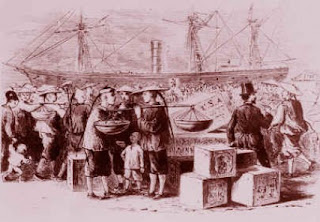The first time I read this science fiction short story written by Arthur C. Clarke, I found it difficult to understand, because of the way in which the author expresses himself and because my lack of knowledge about the topic. The Curse is set on a little town which had been destroyed by a detonating bomb. Apparently, the cause of this war is water as always has been. Despite this nuclear destruction, the only things that remain safe are the Church’s gravestones, particularly Shakespeare’s. But why Shakespeare? I wondered, then as I continued reading, at the end of the story appears The Avon that is a river in the Midlands of England which adjoins Stratford-upon-Avon the birthplace of Shakespeare. It was only then that I understood my previous question, perhaps the author wants to show us through his piece of writing that not only are we destroying buildings and places with our harmful actions but we are also destroying the historical content and the meaning that these places carries in itself, in this case the small town of Stratford-upon-Avon which is visited by millions of tourist for being the place where the famous playwright and poet, Shakespeare, was born and above all where his gravestone stays. This may be the fact that he may not rest in peace.
en.wikipedia.org










